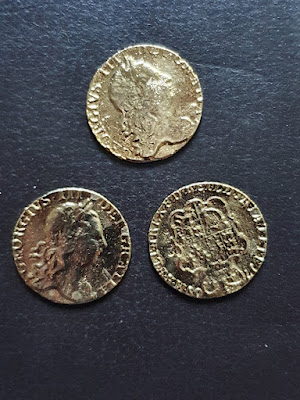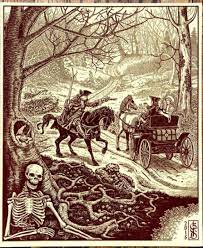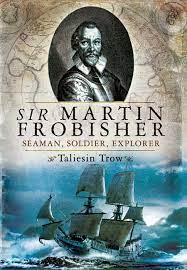Deal and Smuggling.
Deal and Smuggling.
Deal and the Goodwin Sands.
It would be doing Deal a disservice not to mention the Goodwin Sands when putting Deal into a maritime context. Deal, Kent is a strategically placed town twenty five miles from the French coast. The town has been used for crossings to Europe for hundreds of years due to its close proximity. Deal is also a town of military importance since at least King Henry the eighth's rein for harbouring the Royal Navy. The Royal Navy would anchor in the 'Downs' the local name for the Goodwin Sands guarded by three castles.
Taking advantage of this were the skilled fisherman and smugglers of Deal. However, between Deal and France stands the treacherous Goodwin Sands visible at low tide. The Goodwins are six miles off the Deal coast and ten miles long. The sands rest upon a chalk rock and proves difficult to navigate without local knowledge.
The Goodwin Sands is responsible for between two thousand and three thousand five hundred shipwrecks,with up to fifty thousand souls drowning on the sands.
"Pitiful" - Samuel Pepys 1660 describing Deal.
It is now that We turn to the smugglers of Deal.
At the time of 1745 The Smugglers were expert seamen in their own right as they regularly had to navigate the treacherous Goodwins in their Luggers. From 1790 the Deal Smugglers developed the smaller fast moving galley boat, nicknamed the 'centipede'. Up to seventy feet long and with a sail and with up to twenty Oarsmen. The Galley boat could move across the Goodwins skimming the sandy surface or if the tide was low the crews would get out and tow the boat across the sands then resuming their voyage reaching France on a good tide in two hours. The modern cross channel ferry takes one and half hours today ! So this gives the reader a comparison of how fast the boats were travelling.
Smugglers would bring back goods from France and ships anchored in the Downs including the vessels in quarantine. In 1781 the British Government had enough of the tax evading towns people of Deal and dispatched a hundred cavalry and nine companies of infantry were sent to search for contraband. William Pitt the younger, Prime Minister aged 24 escalated the pressure when in January 1784 the army and navy burned every boat in the town to suppress the free traders. However, smuggling in Deal continued. The Smugglers of Deal found a new lucrative trade by running gold guineas (known as the guinea run) to France to pay for Napoleon's war. According to the seasalter.com website Banker Nathan Rothschild sent 400,000 guineas to the French army in 1811. There are also reports that spies were ferried by these boats as and escapees from France. Smuggling in Deal went on into 1880.

Gold guineas during the reign of Richard the third.
A film about shipwrecks on the Goodwin Sands.
"Deal is a most villainous place. It's full of filthy looking people. Great desolation of abomination has been going on here, tremendous barracks, partly pulled down and partly falling down and partly occupied by soldiers. Everything seems upon the perish......." - Rural Rides, William Cobbett, 1823.
"That smuggling was going on there was obvious not from the activity in the town, but from the lack of it." - Fanny Burney 18th Century Novelist.
 |
| Deal Lugger traditional fishing vessel. |
 |
| Galley Boat The Saxon King @ Deal Museum. Bibliography and further information - Smuggling in Kent & Sussex 1700 to 1840, Country wide Books, Mary Waugh. Smugglers Britain, Richard Platt. |







Very interestingand great read. I've never heard of Deal before. Seems like a small little coastal town with a big history. I'm looking forward to reading more of your works.
ReplyDeleteThank you for your comment Khalid. Deal is an historic town. Two brilliant castles to visit. Deal has a lot to offer with some nice eateries and a steep shingle beach. It was once more significant than Dover. Once again Thank you for kind words !!!
ReplyDelete